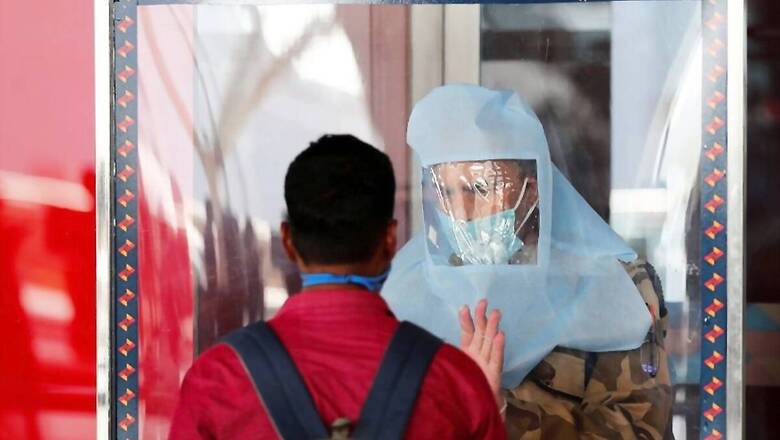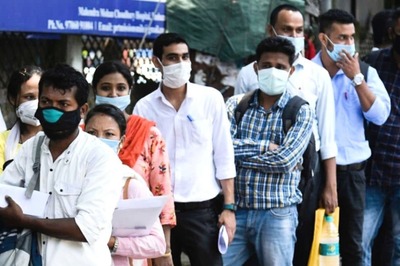
views
A serological survey conducted between August and September has on Wednesday found that nearly 33% of residents in Delhi have developed Covid-19 antibodies. The figure was released after the preliminary analysis of the third survey of 17,000 samples. The final figures are yet to be released officially.
To put it into perspective, the survey implies that 66 lakh people out of the two crore residents in Delhi may have been exposed to the virus and are now carrying antibodies.
“The report has been submitted to the health department and it is currently being reviewed. The final report could have minor variations in the final seroprevalence since data from some wards are also being re-checked,” a senior government official, told The Hindustan Times.
This is also the highest seroprevalence since the outbreak of the coronavirus pandemic.
The figure rose from 29.1% in the second survey conducted in the first week of August. The first serological study found 23.4% people carrying antibodies. While 15,000 samples were collected for the second survey, over 21,000 samples were gathered in the first one.
The survey’s third report said that the samples taken from containment zones in Delhi had a “significantly higher sero-prevalence” than those who had never lived in one.
“A sero survey is necessary to find out the true burden of the infection in the city or state. More importantly it helps identify the number of asymptomatic people who had the disease and recovered from it. Such people, in most cases, are not even aware that they are infected,” Dr Lalit Kant, former head of epidemiology and infectious disease at Indian Council of Medical Research (ICMR), said.
Meanwhile, scientists say that the presence of antibodies indicates previous exposure to the SARS-CoV-2 virus but may not always translate into protection against the disease, citing imponderables such as what kind of antibodies, how many and how long they last.
There are neutralising antibodies (nAbs) and also simple’ antibodies. While nAbs produced against the novel coronavirus can block its entry into the host cell, other antibodies are also generated against many parts of the virus, added Vineeta Bal from Pune’s Indian Institute of Science, Education and Research (IISER). The simple’ antibodies are an indication of host response to viral presence but are not that useful to stop further spread of the virus, Bal said.




















Comments
0 comment